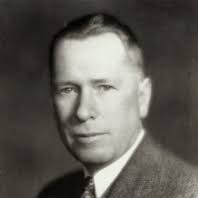Access to all articles, new health classes, discounts in our store, and more!
How Refined Foods Affect Us
Published in Herald of Health, June 1963.
* * *
Have you ever been bothered by a laboring heart that refused to slow down when you went to bed at night, or by an attack of “paroxysmal tachycardia,” in English a “racing heart” which pulsates twice as fast as normal?
Both are results of the use of an excessive amount of refined sugar in the food pattern during the preceding hours.
When sugar is stored in the muscle reserves, it also requires potassium, phosphate and creatine to form phosphagen, the muscle fuel organ.
When the sugar (hexose) part of the assembly (di-potassium-creatine-hexose-phosphate) is used up, the potassium, phosphate, and creatine may be lost by diffusion out into the blood and to the kidneys before more sugar may be available to reconstruct the phosphagen molecule. I have a personal theory that inositol may have the function in the muscle to act as a stopgap substitute for sugar (hexose) during this interval to hold the phosphagen intact. Inositol has a molecular shape almost identical to that of glucose, but cannot be used as fuel by the body. Its presence in the muscle cell has not been otherwise explained. (Inositol is one of the B-complex vitamins.)
When the potassium has all been taken up from the blood by an excessive indulgence in refined sugar products, the effect on the heart of this low blood potassium is either paroxysmal tachycardia or a heavy laboring action as if one had been walking up a long hill.
Potassium, as bicarbonate, or as alfalfa tea, or alfalfa extract tablets, promptly relieves such tendencies.
Unrefined carbohydrates such as raw sugar, molasses or whole wheat bread, contain an ample amount of potassium to prevent such reactions.
Potassium deficiency has been found lately to be a cause of congestive heart failure, in clinical research.
Physiologists have always wondered why potassium, chemically interchangeable with sodium in common chemical reactions, is selectively retained in the body cells while sodium is not. The above reaction seems to be the answer. Potassium performs its function by holding sugar within the cell as a fuel reserve, while sodium performs its function of promoting osmotic interchanges between the blood vessels and tissues by its action in the blood stream and extra-cellular fluids.
Potassium balances sodium in these reactions. If you develop a condition requiring sodium restriction, you may really be suffering from potassium deficiency. The proper way to correct a deficiency is to provide the missing factor, rather than to reduce the intake of the synergistic partner. That is like checking the oil in your auto crankcase and on finding it half full, reduce your gas purchase to a half tank too.
“A little knowledge is a dangerous thing.” The life you save by getting the truth and all the truth may be your own.

